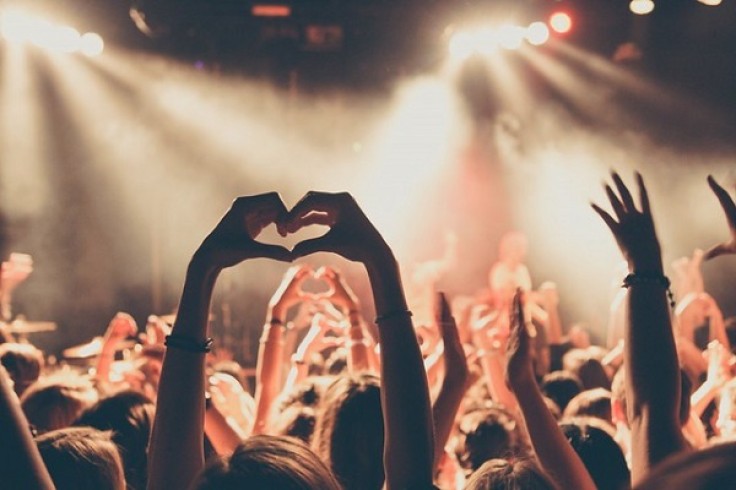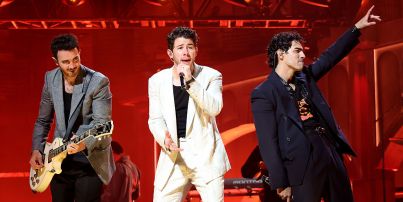
A new generation is reshaping the concert experience, and not necessarily for the better. As those who came of age during the COVID-19 lockdown are beginning to attend concerts, a concerning lack of concert etiquette is becoming more and more evident, especially as social media takes center stage in the live music scene.
The influence social media has on live events has reached a point where concertgoers, drawn in by viral sensations, attend shows with minimal knowledge of an artist's repertoire, much to the chagrin of the musicians themselves. Last year, footage of concerts began going viral, though not in an expected way. Alternative R&B artist Steve Lacy, whose hit "Bad Habit" had achieved TikTok virality, began to attract an audience who were only familiar with his work through the social media app, resulting in the whole crowd [going] silent after [the] viral TikTok verse. Reporting for Tone Deaf, writer Ross Cutsforth notes that it is a common practice for artists to stop performing in order to give the audience the chance to show how well they know the song's lyrics, this backfired, as Cutsforth writes: "The problem with the clip is that many of the fans only know Steve Lacy through TikTok, where the hook for Bad Habit blew up. This was showcased when the crowd went nearly dead silent as the sound bite passed." One X (formerly Twitter) user joked "Tiktok is insane because why would you go to a whole concert solely for a hook???"
While discouraging, this phenomenon is not as harmful as other emerging, disruptive trends in the concert-going experience, with incidents ranging from intentionally throwing phones at artists to bizarre attention-seeking activities.
Earlier this year, singer Bebe Rexha was injured after being hit with a cellphone, reportedly because "he thought 'it would be funny." There have been many other instances of artists being pelted by phones, cameras, and other objects, including the cremated ashes of family members, as reported in an article about concert etiquette by Celeste Headlee, Hafsa Quraishi, and Grace Griffin for WBUR. The same article also notes the rise of aggression and violence at these shows, stating "Throwing objects isn't the only type of unsavory behavior that's been gaining traction. Concertgoers report people pushing to the front and being aggressive in crowds. But why is this happening now? Have fans always been this unhinged at shows, or is this a new phenomenon?"
The article draws on the work of social psychologist John Drury, who specializes in the study of collective behavior, with Drury noting that much of this behavior seems to have followed the lockdowns of the global pandemic: "Most commentators, certainly in the live events industry, think this is something new...many people in the industry feel that audience behavior has got worse over the last two years." He continues "People are now more individual-focused. They attend events for their own individual pleasure, and they're not really thinking about being part of a group or a collective in the way that they might have been before...These are people who perhaps are treating the event as an opportunity for them to build their social media profile rather than considering the other people around them."
Bands associated with the "chronically online" and irony-driven culture, such as Death Grips, Machine Girl, 100 gecs, The Garden, and Black Midi, are at the forefront of these disruptive trends, with fans engaging in bothersome behavior like playing Beyblade or Dungeons and Dragons amid a mosh pit and even urinating in crowds.
One post on the Death Grips subreddit scolds "Friendly reminder that if you're playing video games, watching cartoons or recording with a Nintendo in the crowd, you're an unoriginal and unfunny a**" on the rise of younger fans bringing Nintendo consoles, and the inescapable trend of watching Family Guy episodes coupled with Subway Surfer gameplay in the crowd to mimic internet content. Another user of the subreddit posted a statement reading the following: "Going to the show is, itself, a performance for these people. It's a canvas for them to be the funniest person at the show, they have to be seen being the funniest, kookiest, wackiest person at the show by recreating an outfit they saw in a meme. I legit wonder how much of this is from tiktok brain poisoning and s**because death grips shows were never even close to that bad...One of my friends saw Machine Girl with 100 Gecs a while back, and she said they were largely the same."
Shockingly, some concerts are now being ranked by smell, pointing to a concerning shift where certain fanbases seem to neglect basic hygiene, either due to a lack of social development or an intentional move to play into stereotypes associated with their fanbase of choice.
The core essence of attending concerts, once about enjoying the music, has now transformed into a quest for online clout. This shift, prevalent in music festivals and large stadium shows, has seeped into local venues, overshadowing the genuine appreciation of live performances.
The hype surrounding certain artists has inflated concert prices to exorbitant levels, turning ticket acquisition into a status symbol. Interestingly, when these concerts are later released in movie theaters, fans treat it as an actual live performance, leading to chaotic scenes with moviegoers singing, screaming, and dancing, leaving theaters in disarray.
Long-time music scene enthusiasts are witnessing these negative changes, finding less joy in attending concerts. Frustrated artists, fed up with disruptive behavior, are increasingly walking off stage, further diminishing the concert experience.
As concert prices continue to soar, the question arises: Are these disruptions and changes worth the steep cost? The evolving landscape of live music demands a reevaluation of concert culture, urging both fans and artists to reclaim the essence of the shared experience before it's lost to internet-driven chaos.
© 2025 MusicTimes.com All rights reserved. Do not reproduce without permission.







